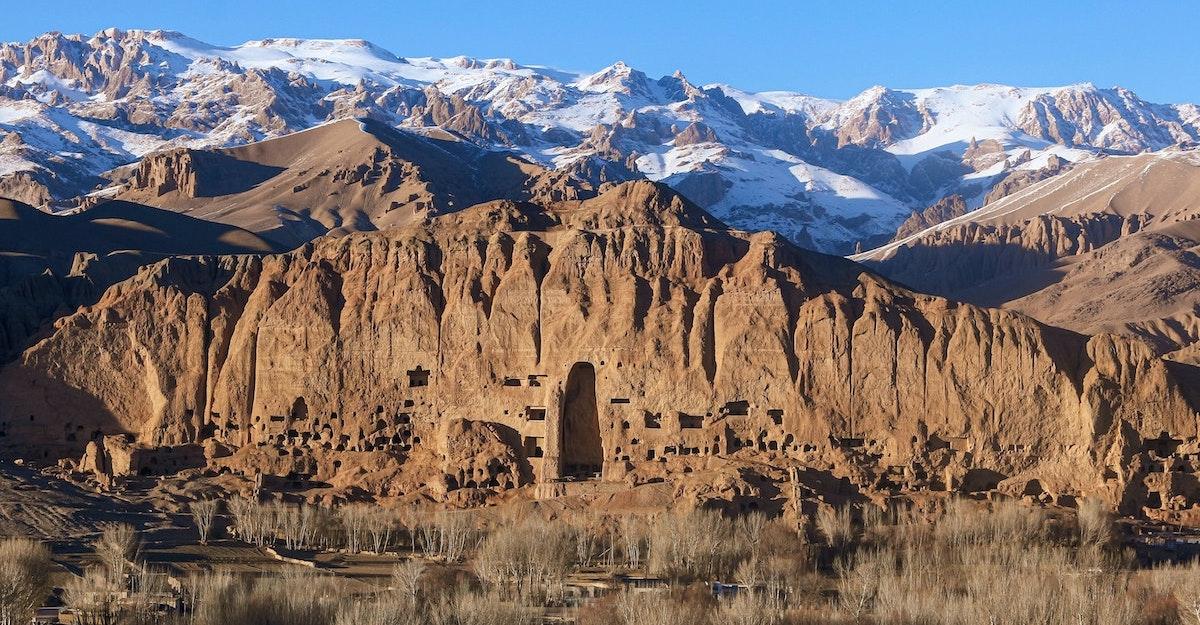Country guides

Electricity
Electrical current is 220 to 240 volts, 50Hz. Plugs with either two or three round pins are standard.
Language
Pashto and Dari are the official languages of Afghanistan, and the most widely spoken.
Money
The use of foreign currency is banned and payments need to be settled in the Afghan afghani (AFN). Credit cards are not widely accepted for payment and, though some ATMs and banks function, there are restrictions on the levels of cash withdrawals.
Tipping
Tipping is not mandatory nor expected, though it's always very much appreciated.
Health
Diarrhoeal diseases and other gastrointestinal infections are common causes of ill health, with outbreaks of acute watery diarrhoea, measles and other viral infections regularly occuring around the year. The dry dusty conditions in summer and winter can cause irritation to the eyes, throat, nose and skin; malaria is present except in the high mountainous regions of the country and in winter.
Health care is inadequate and may be completely unavailable. If available, health-care facilities are not appropriately sanitised, meaning patients requiring medical treatment for incisions or wounds run a significant risk of infection. Prescription medications are not available.
Safety
The security situation is highly volatile and the potential for further attacks remains extremely high. Violent incidents could occur across the country. Travelling throughout the Afghanistan is extremely dangerous, including in Kabul. There are checkpoints on all roads and throughout cities. Some borders are closed or may close without notice; border crossing is risky.
Local customs
Afghanistan is an Islamic country and visitors should be respectful of religious traditions and laws, particularly during the month of Ramadan. Homosexuality is illegal, as is taking pictures of government buildings, military installations and palaces, and the locals don't always appreciate being photographed either. It's illegal to buy or export historical antiquities without a receipt from an authorised dealer and travellers may be asked for proof of purchase when leaving the country.
Doing business
English is understood by many but not all Afghan business people and, as Afghanistan is an Islamic State, visitors should respect Muslim customs. Women are expected to dress conservatively and have a scarf draped on the shoulders when attending meetings; Western attire is acceptable.
Duty free
Visitors may import reasonable quantities of tobacco products and alcoholic beverages for personal use without charge, and there are no restrictions for perfume. Import of film cameras is only possible with a license.
Communications
The international access code for Afghanistan is +93. It is often cheaper to get a local sim card than to pay international roaming costs. Free WiFi is available in hotels in Kabul.
Passport & Visa
The Government of Afghanistan collapsed in August 2021. Since then, all travel to and out of the country has been severely restricted. Borders are closed or may close suddenly. Regular entry and exit requirements may not apply at this time, and they could also change without notice. The situation is volatile and shifts quickly; travellers should avoid visiting to Afghanistan.
Entry requirements
Nationals of the USA need a passport that is valid for six months beyond their date of departure, and a visa.
British nationals need a passport that is valid for six months beyond their date of departure, and a visa.
Nationals of Canada need a passport that is valid for six months beyond their date of departure, and a visa.
Nationals of Australia need a passport that is valid for six months beyond their date of departure, and a visa.
Nationals of South Africa need a passport that is valid for six months beyond their date of departure, and a visa.
Nationals of Ireland need a passport that is valid for six months beyond their date of departure, and a visa.
Nationals of New Zealand need a passport that is valid for six months beyond their date of departure, and a visa.
Useful contacts
—Embassies / consulates in other countries
Embassy of Afghanistan, Washington: (202) 483 6410
The Embassy of the Islamic Republic of Afghanistan, London: (020) 7225 4743
Afghanistan Embassy, Ottawa: (613) 563 4223
Embassy of Islamic Republic of Afghanistan, Deakin: (61) 26282 7377
Embassies / consulates in Afghanistan
Embassy in United States, Kabul: (93) 70 010 8001
British Embassy, Kabul: (93) 0 700 102 000
Embassy of Canada, Kabul: (93) 70 110 8800
Australian Embassy, Kabul: (61) 2 6261 3305
New Zealand Embassy, Kabul: (93) 700 102 000


